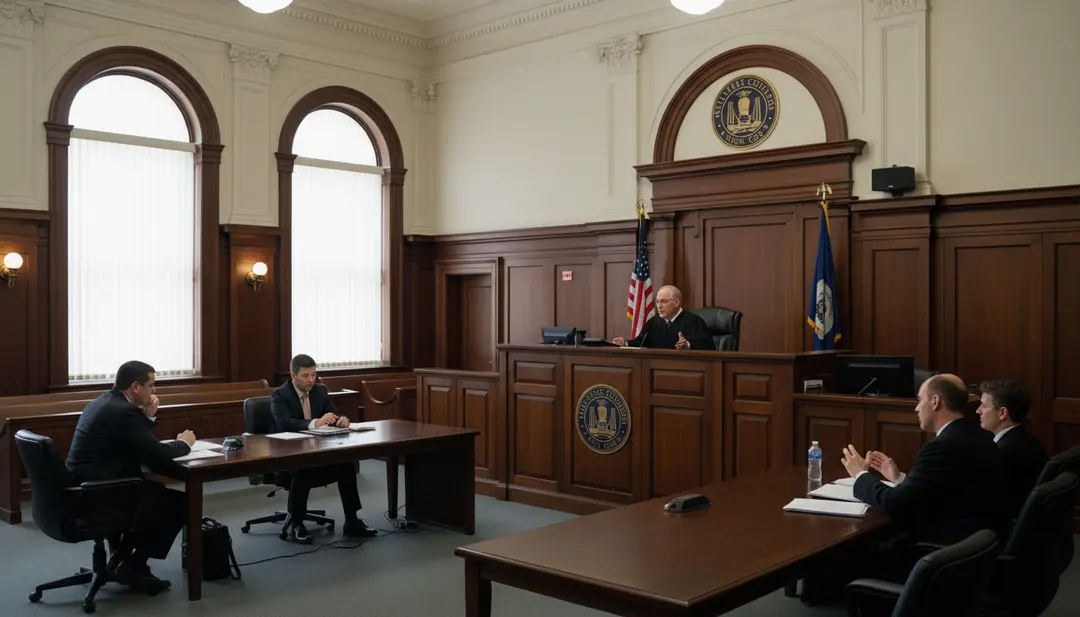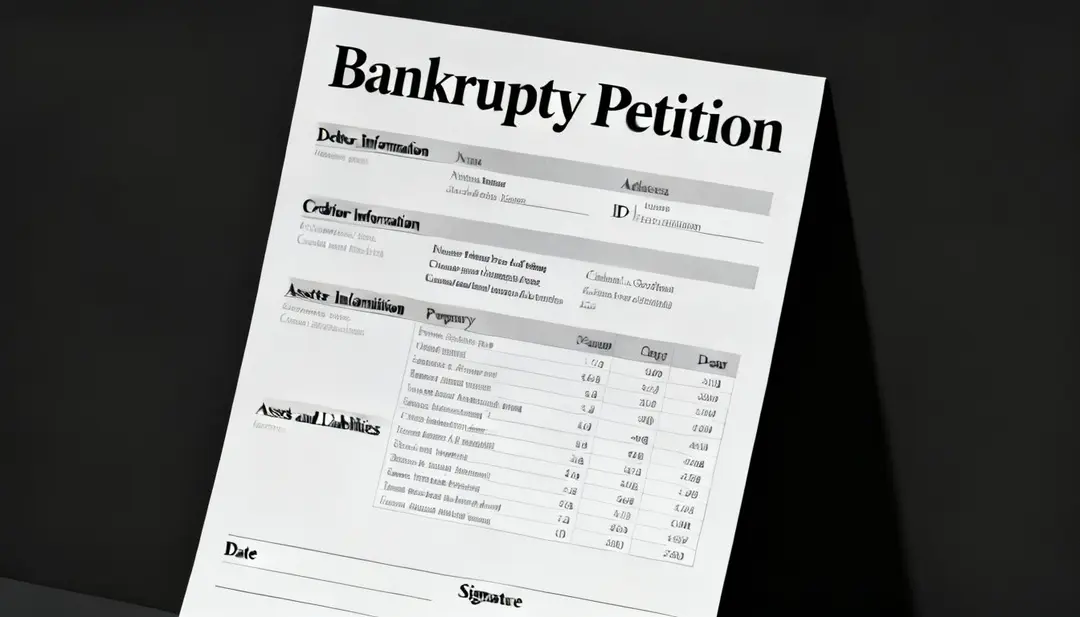HOA records retention is not just a procedural formality; it’s essential for effective association management. It’s the cornerstone for continuity, aiding decision-making, and assists in navigating legal processes. Every HOA board member knows the importance of maintaining organized and accessible documents—from board minutes to financial records. What’s more, categorizing these essential records, such as tax returns and maintenance histories, is critical since they hold informational value and are indispensable in legal compliance.
In our Ultimate HOA Records Retention Guide, we will unearth the legal intricacies of which documents need to be kept and for how long, as well as share the golden rules of implementing an efficient record-keeping system.
Our guidance offered in this blog (not to be taken in any form as professional legal advice) encompasses best practices for the safeguarding and organization of these vital records, ensuring they remain in impeccable order. You’ll learn the retention periods for key HOA documents, understand how to securely dispose of outdated records, and ultimately, ensure your association adheres to the legal requirements, thus upholding its integrity. Join us as we navigate the complexities of HOA document management with a professional and expert approach.
Understanding the Legal Requirements
Our expertise in this area is crucial for ensuring that your HOA adheres to the necessary legal standards and avoids potential pitfalls. Here’s what you need to know:
Essential HOA Records and Legal Retention Mandates
- Permanent Records: Certain documents form the backbone of your HOA’s legal and operational framework. These include:
- Governing documents such as bylaws and CC&Rs
- Meeting minutes detailing board and member decisions
- Legal records that may pertain to litigation or other legal matters
These records should be kept indefinitely, as they are not only foundational but also provide a historical record that may be crucial for future reference.
State-Specific Retention Requirements
- Varied Duration by State: It’s important to recognize that retention periods can vary significantly from state to state. Here are a few examples:
- Arizona: Requires that ballots and related materials, including sign-in sheets be retained for at least one year after an election.
- Nevada: Requires maintenance of records for a minimum of 10 years, with meeting minutes kept indefinitely.
- Colorado: Stipulates that HOA meeting minutes are to be retained permanently.
- California: While there is no specified duration, the recommendation is to keep corporate records, like bylaws and minutes, forever.
- Create a Policy: If state law does not mandate the retention period for certain documents, your HOA should establish a policy for retention and the secure destruction of documents not legally required to be kept. This policy ensures clarity and consistency in your record-keeping practices.
Record-Keeping for Operational Efficiency and Problem Resolution
- Types of Records: An HOA handles a wide variety of documents including:
- Financial records such as budgets and audits
- Insurance policies and related claims
- Warranties and contracts for services or maintenance
- Policies and procedures established by the board
- Retention for Efficiency: Proper record keeping isn’t just about legal compliance; it’s also about maintaining operational efficiency. Having organized records on hand helps in resolving issues swiftly and effectively, ensuring smooth governance of your association.
While the retention of HOA documents is dictated by legal requirements, it’s also guided by the practical need for operational integrity. By adhering to state-specific laws and creating robust retention policies, your HOA can ensure it’s both compliant and well-equipped to manage its affairs with competence and diligence. What’s more, this approach underpins the trust and confidence that your members place in the board’s ability to govern effectively.
Categorizing HOA Records
In organizing HOA records, it’s essential to establish a system that not only meets legal requirements but also serves the informational value of the documents. This ensures that when board turnover occurs, the incoming members can easily access and understand the records, thereby maintaining continuity and efficiency. Here’s what you need to know about categorizing your HOA records:
Legal and Permanent Records
- Board Minutes and Tax Returns: These are the cornerstones of your HOA’s documentation. Board minutes are to be kept indefinitely, capturing all decisions made by the board and the membership. Tax returns, while not permanent, should be retained for a minimum of four years.
- Legal Documents: Include governing documents like bylaws and CC&Rs, as well as any litigation records. These are to be stored indefinitely for historical reference and potential future legal scrutiny.
Operational and Informational Records
- Maintenance and Repair Records: Items such as roof replacement specifications and maintenance history hold significant informational value. They guide future board decisions regarding repairs and upgrades.
- Financial Records: Budgets, audits, and other financial documents are crucial for financial transparency and should be kept for at least four years.
- Insurance Documents: Policies and claims should be retained as per the advice of your insurance provider, usually until superseded or for a specified time after settlement.
Storage and Organization
- On-Site vs. Management Company: It is advised that secure storage is used for HOA records. Alternatively, a professional document management and storage company can be considered.
- Fireproof Protection: Permanent records such as board minutes deserve extra protection. A fireproof cabinet is recommended for these invaluable documents.
- Uniform Storage Boxes: Utilize uniform size record storage boxes, clearly numbered, and maintain a separate listing of the contents for each box. This aids in quick retrieval and efficient management.
Categorization and Maintenance Schedule
- Categorize by Type: Organize records into categories like Legal, Financial, Maintenance/Facilities, Correspondence, and Other. This simplifies the search process.
- Group by Retention Period:
- Permanent records (e.g., board minutes)
- Retain for four years (e.g., tax returns)
- Retain till superseded (e.g., insurance policies)
- Retain one year (e.g., general correspondence)
- Annual Review: Conduct an annual cleaning to index new records, review stored records for those that have met their retention period, and securely dispose of expired documents.
By meticulously categorizing your HOA documents and adhering to a structured retention policy, you’re not only ensuring legal compliance but also paving the way for a well-managed and efficient HOA. This proactive approach is a testament to the board’s commitment to transparency and responsible governance.
Implementing an Efficient Record-Keeping System
In our commitment to guide you through the essentials of an HOA Records Retention Guide, we now turn our attention to implementing an efficient record-keeping system.
Designation and Filing:
- Appoint a Record Keeper: Assign a dedicated individual or team responsible for managing HOA records. This role requires meticulous attention to detail and an understanding of both legal mandates and the association’s specific needs.
- Logical Filing System: Develop a categorization scheme that reflects the types of documents handled by the HOA. This could be by date, document type, or relevance to particular HOA functions, ensuring ease of retrieval.
Physical and Digital Storage Solutions:
- Secure Storage: Utilize water and fireproof cabinets to protect physical records from damage. This is where you store original documents that are critical to the HOA’s operations.
- Standardized Boxes: Adopt a consistent method for physical storage. Use boxes of uniform size, clearly label them, and keep an inventory list to avoid misplacement and facilitate easy access.
- Digital Storage Systems: Embrace digital solutions such as Google Drive or Dropbox for increased efficiency. These platforms allow for remote access, easy sharing, and editing of documents.
- Specialized Software: Consider investing in HOA-specific software like Neigbrs by Vinteum, which offers tools for centralized communication, maintenance request management, and community website administration.
Backup and Policies:
- Regular Backups: Ensure electronic records are backed up routinely using reliable third-party services. This step is vital for data security and provides a safety net in case of technological failures.
- Retention and Destruction Policies: Ensure that there is an established definition of all record keeping and its timeline. Establish protocols for the secure destruction of records that are no longer needed, involving board pre-approval and maintaining a detailed record of destroyed files.
- Custody-and-Control Policy: Implement a policy that outlines who can access various documents, under what circumstances, and the process for transferring custody of records when necessary.
By meticulously following these steps, your HOA can create a record-keeping system that isn’t just compliant with legal standards but also serves as a cornerstone for effective governance. This proactive approach ensures that records are not only safeguarded but are also organized in a way that supports the board’s responsibilities and the community’s trust in its management.
Retention Periods for Key HOA Documents
In our role as stewards of your HOA’s documentation, it’s our duty to ensure that each document is retained for the appropriate amount of time, as mandated by legal requirements and best practices. Let’s delve into the retention periods for key HOA documents, providing you with a clear roadmap for maintaining your records with precision and care.
Permanent Records
Our first priority is to safeguard the documents that are the bedrock of your association. These include:
- Board minutes and notices of meetings: The official records of decisions made by the board and membership, which are to be kept indefinitely.
- Executive session meeting minutes: Confidential records detailing closed-session board discussions, also to be kept indefinitely.
- Membership meeting minutes and notices: These records of general membership meetings are crucial and should be retained permanently.
- Original enabling documents: You must never destroy any of the founding documents, which include but may not be limited to: declaration of covenants, conditions, and restrictions (CC&Rs); these documents must never be discarded.
- Legal settlement agreements and attorney-client privileged information: These documents are vital for historical reference and potential future legal matters.
- Property deeds and title insurance policies: Indefinite retention is necessary to establish and protect property ownership.
Retain for Four Years
The following records should be kept for a minimum of four years, ensuring compliance with IRS guidelines and allowing for thorough financial review:
- Membership meeting ballots, proxies, and check-in sheets: These are important meeting and proxy documents that must be retained for at least four years.
- Bank statements and canceled checks: Essential for financial tracking and audits.
- Paid bills and payroll tax returns: These records support financial transactions and tax filings.
- Monthly general ledgers and accounts receivable listings: Key financial documents for monitoring the HOA’s fiscal health.
- Dues billing and collection documents: Important for tracking member dues and managing delinquencies.
- Insurance claims history: Provides a record of past claims, which can inform future insurance decisions.
Retain Until Superseded
Certain documents are important but can be replaced with updated documents. Here are a few good examples:
- Contracts (management & vendor services, loan documents): Retain for the life of the contract, plus an additional period as determined by the association’s bylaws.
- Rules and their interpretations: Keep until new rules or interpretations are adopted.
- Non-architectural enforcement matters: Hold on to these until the issue is resolved and no longer relevant.
- Warranties and guarantees: Store for the duration of the warranty period.
- Funding studies and equipment specifications: Essential for planning and budgeting, retain until updated versions are produced.
- Insurance policies: Keep until a new policy supersedes the old one.
Retain for One Year
Some of the HOA documents do not require retention for long than a one year period of time:
- Meeting agendas: These outline the topics discussed and are typically only relevant until the minutes are approved.
- Monthly financial statements: While important, detailed annual statements often supersede these.
- Light correspondence: General communication that doesn’t have a lasting impact can be discarded after one year.
Secure Destruction of Records
Once the fiscal year concludes, we gather the current year’s records, cross-reference them with our stored record listing sheets, and securely destroy those that have reached the end of their retention period. Our method of choice is shredding or incineration, ensuring that sensitive information is completely and irreversibly destroyed.
Consistency and Compliance
To maintain consistency and uphold legal compliance, we establish a records retention and destruction policy. This policy serves as the guiding framework for our meticulous record-keeping, ensuring that no document is misplaced or prematurely discarded. Our policy not only outlines the retention periods but also the protocols for secure destruction, involving board pre-approval and detailed records of destroyed files.
By adhering to these retention guidelines, we affirm our commitment to the integrity and effective management of your HOA. It’s a testament to our dedication to transparency, accountability, and the safeguarding of your association’s historical records.
Securely Disposing of HOA Records
In the conscientious management of an HOA, the secure disposal of obsolete records is as critical as the meticulous retention of current ones. Here’s what you need to know to ensure the integrity of the process and the privacy of your members:
Methods of Disposal
- Shredding: Physical documents that are no longer necessary should be shredded. Consider contracting with a professional shredding service that can provide a certificate of destruction as proof of the secure disposal.
- Digital Purging: For electronic records, utilize software that can permanently delete files. It’s not enough to simply hit ‘delete’—you must ensure the data is unrecoverable. Specialized services can overwrite data multiple times, making it irretrievable.
- Archiving: In some cases, it may be prudent to archive documents digitally, especially those that could have future relevance but are not actively needed. Use encrypted digital storage with restricted access for these archives.
Record of Destruction
- Log Keeping: Maintain a destruction log detailing what was disposed of and when. This log should include the method of destruction, the date, and a signature of the authorized individual who oversaw the process. It serves as a record of compliance and due diligence in the event of future audits or inquiries.
Special Considerations
- Operational Records: Be cautious not to discard records prematurely that may be needed for operational consistency. For instance, if an owner contests a parking violation, the HOA needs to provide historical enforcement records to demonstrate equal treatment of all residents.
- Legal Requirements: In Utah, as an example, certain documents like declarations, bylaws, and meeting minutes must be kept indefinitely, while others like annual reports are required for three years. Always refer to your state’s specific regulations to ensure compliance.
By adhering to these guidelines, your HOA board responsibilities and disclosures are fulfilled with an unwavering commitment to both legal compliance and operational integrity. The HOA Records Retention Guide is not just a set of instructions; it’s a testament to the trust vested in us by our community. Our approach to record disposal reflects our dedication to safeguarding the HOA’s historical legacy and the privacy of its members, ensuring we continue to set the standard for excellence in HOA governance.
Final Thoughts
Thoroughly managing the retention and disposal of HOA records is a critical element in maintaining the trust and efficiency within your community association. By adhering to the retention guidelines and arranging for the secure destruction of outdated documents, your HOA stands as a paragon of responsible governance. What’s more, this practice safeguards your association against legal risks and strengthens the continuity and operational efficiency which are vital for a thriving community.
In providing members with peace of mind and upholding the integrity of the HOA, this guide serves as an invaluable resource, highlighting the balance between legal compliance and practical necessity. Ultimately, a sound records management strategy is indispensable, reinforcing the diligent undertakings of the association and fostering a tradition of transparency and excellence for future board administrations.
Contact Experienced HOA Attorneys
At Halk, Oetinger, and Brown, we specialize in representing Arizona homeowners associations and planned communities. We routinely work closely with HOA management companies throughout the state and have helped many of our clients find the best fit for their needs.
Our firm can assist with every step of the process in finding the right HOA management company. Call us today at 602-952-6925 to schedule an initial consultation or make an appointment on the contact us page of our site.
Halk, Oetinger, and Brown shares this article for informational purposes only, and it does not create an attorney-client relationship.













